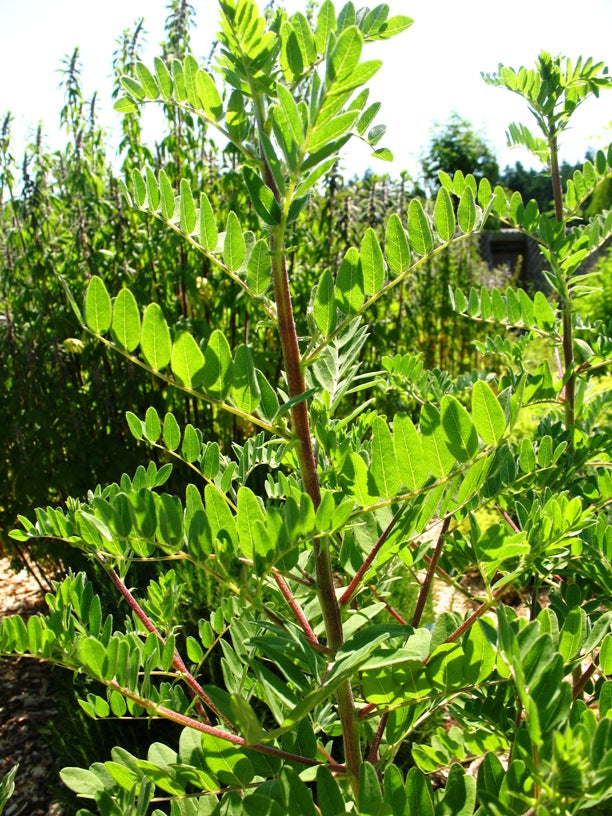
Astragalus root
A medicinal plant whose use comes to us from Chinese medicine, its Latin name is Astragalus membranaceus and it is a member of the Fabaceae family, also known as the legume/pea family. The root is the part that is used, and it is considered a quintessential immune tonic or immune modulator. This means it can help with immune system weakness, when someone regularly gets sick with viral or bacterial infections or takes a long time to recover, or immune hyperactivity, when someone has an autoimmune illness such as rheumatoid arthritis. In Chinese medicine, it is considered a tonic herb that can increase vitality and longevity.
Its primary actions that have been borne out in traditional use, clinical practice, and/or laboratory research are that astragalus is: immune modulating, adaptogenic, anti-tumor, anti-inflammatory, antiviral, cardiotonic, diuretic, hypotensive, antioxidant, hepatoprotective, cancer preventive, tissue regenerative, and protective against drops in white blood cell count during chemotherapy or radiation.
Based on the above actions, this herb is used in cases of immune weakness due to chronic stress, because it has a protective effect on the adrenal glands, heart, liver, and kidneys and can help decrease chances of immune weakness when under stress. It can act as a prophylactic against the common cold, upper respiratory tract infections, and other viral infections. It is also potentially protective against a compromised immune system during cancer treatment, and because of its antitumor, heart & liver protective effects, and its antioxidant properties, astragalus is often useful for someone diagnosed with or at risk for cancer, improving chances for recovery and longevity. Astragalus may also be useful as a hypotensive, because of its heart tonic and diuretic actions.
Astragalus is used medicinally in a decoction, meaning that the root is cooked/simmered in water or broth for a certain length of time, usually a minimum of 20 minutes; as a tincture, or powdered in capsules. Traditionally, the root slices were added to soups/stews in fall and winter and cooked in the broth, then removed and the soup and broth consumed. This is a great way to get the health benefits of astragalus root into your diet. At Herban Wellness, I sell astragalus root in small cut-root form for decoctions/teas and the root slices (they look like tongue depressors) for decocting or adding to soups/stews. I also sell the powder that can be added to food. Generally speaking, you need to consume this herb regularly for several weeks to help strengthen a weak or debilitated immune system. The general dose for prevention is 1 Tbsp of herb/16 oz or so of water, simmer for 20-30 minutes, strain, and drink in a day. Add 3-4 root slices to a pot of soup, beans, or rice, and pull out of the food before consuming. For healing and more acute situations, double or triple the dose, taking 3 Tbsp per day, simmered in 24 ounces of water.
Because this herb seems to strengthen and tonify the immune system over time, it is generally not taken or recommended for acute infections. It is mostly used for chronic immune and adrenal weakness and to strengthen and protect organ systems over time.

